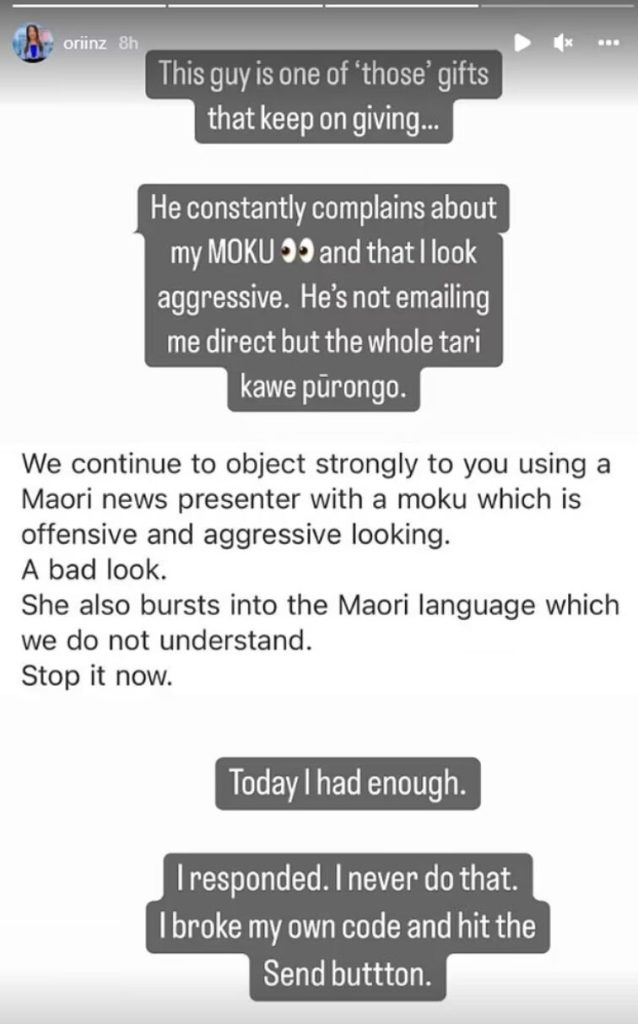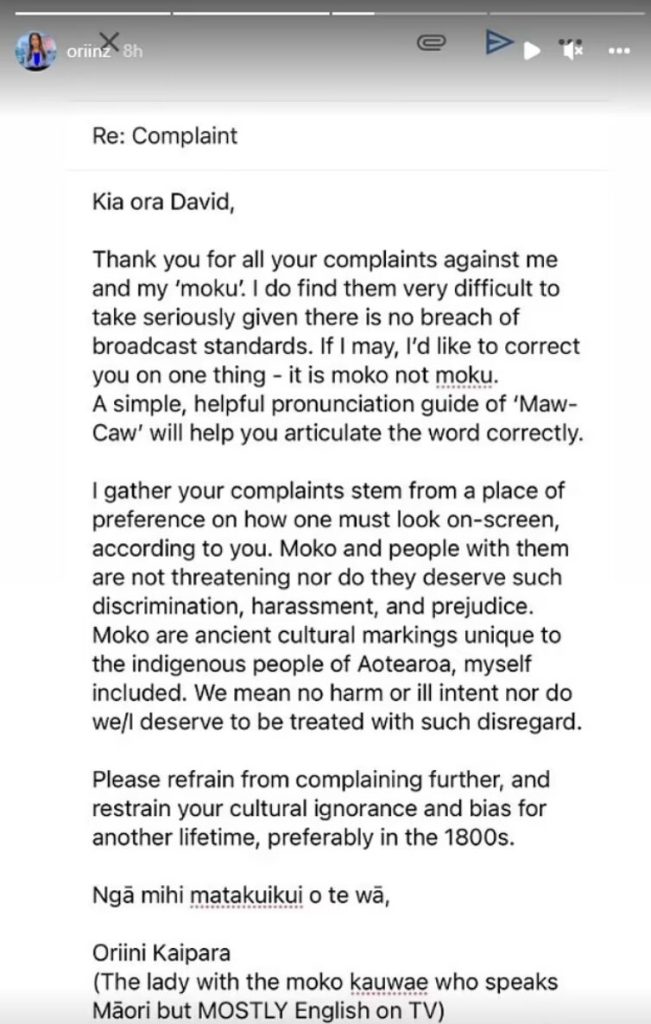TV Host with Māori Face Tattoo Stands Up to Hurtful Trolls with Grace and Pride

The television presenter, adorned with a striking Māori face tattoo, has gracefully responded to cruel online comments, showcasing her unwavering pride in her cultural heritage and identity.
Facial tattoos often spark heated debates online. While some argue they should be confined to the body, others recognize their deep cultural significance.

Oriini Kaipara, 41, has broken barriers in the world of television. She made history as the first primetime TV newsreader in New Zealand to proudly wear a moko kauae, a sacred facial tattoo for Māori women. This milestone marks a significant step forward for representation and cultural visibility.
The Māori, the indigenous Polynesian people of New Zealand, view moko kauae as powerful symbols of identity and heritage. These traditional tattoos, inked on the lips and chin, signify a woman’s lineage, leadership, and connection to her ancestors, as well as her social standing and personal achievements.
However, not everyone has embraced Kaipara’s cultural expression. A viewer named David sent an email to Newshub, expressing his disapproval.
“We strongly oppose the use of a Māori newsreader with a moku [moko] that looks offensive and aggressive,” he wrote, as reported by The Daily Mail. “It’s not a good look. Additionally, she speaks in the Māori language, which we don’t understand. Please stop it immediately.”

Rather than ignoring the criticism, Kaipara chose to address it head-on. She shared screenshots of David’s message on her Instagram story, responding with dignity and strength.
“Today was the day I had enough,” she wrote. “I finally responded, which is something I never do. I went against my own principles and clicked the send button.”
In her email reply to David, Kaipara calmly explained that his complaint held no merit, as it violated no broadcast standards. She also took the opportunity to correct his misspelling of moko (he had written “moku”).
“Your complaints seem to stem from personal preferences about how people should appear on screen,” she wrote. “Moko and those who wear them should not face discrimination, harassment, or prejudice. They are not threatening.”
She added, “We have no intention to cause harm or ill will, and we—I—do not deserve to be treated with such disrespect. Kindly refrain from further complaints and try to move past your cultural ignorance and bias, as if you were living in the 1800s.”
Despite the negativity, Kaipara emphasized that the majority of feedback she receives is overwhelmingly positive, with only a handful of trolls attempting to bring her down.
In an interview with the New Zealand Herald, Kaipara highlighted the importance of Māori representation across all sectors. “The fact that my existence triggers some people shows why we need more advocates and visibility,” she said.

Kaipara’s poised and powerful response serves as a reminder of the importance of cultural pride and resilience in the face of adversity. She is inspiring countless others to embrace their identities unapologetically and stand firm against discrimination.
What do you think about Kaipara’s story? Share your thoughts in the comments below!